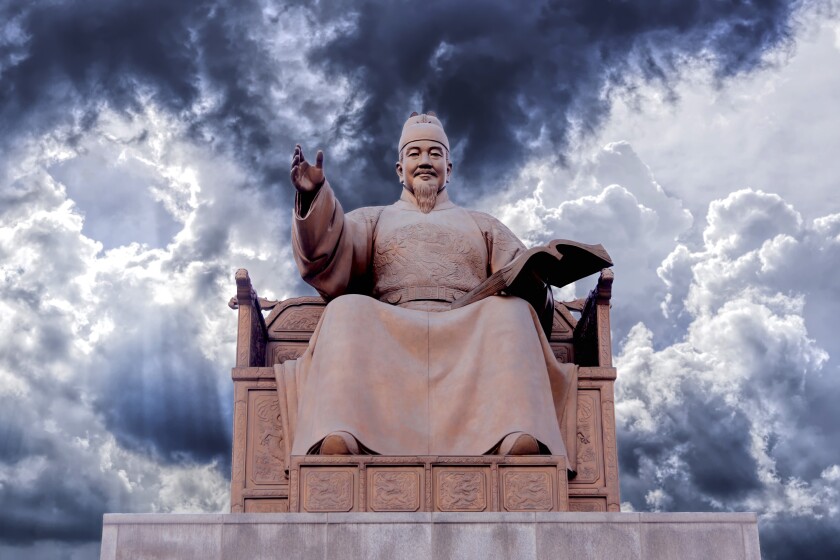Patent rights are inherently governed by the territoriality principle, confining the reach and effect of such rights within the territorial boundaries of the country granting the patents. As a matter of principle, therefore, a patent granted in South Korea is protected only within that country, and acts of working, such as making or using, carried out outside Korea are generally not considered subject to patent protection under the Korean Patent Act.
In the case of a product invention, for instance, the Patent Act stipulates that an act of making or assigning an article used exclusively for producing the product may be deemed to infringe a patent right. However, under the territoriality principle, the ‘producing’ of such article refers only to production conducted within Korea. As a result, where all the components or parts of a patented invention are produced domestically but subsequently assembled into the final product abroad, Korean courts have consistently held that this practice of production (domestic production of components followed by overseas assembly) does not constitute direct or indirect infringement (see Supreme Court Case No. 2014 Da 42110, rendered on July 23 2015).
This strict application of the territoriality principle is being challenged, however, in light of the rapid growth of global e-commerce platforms, with cross-border sales and marketing becoming increasingly prevalent.
To cope with the changing environment, Korean courts have begun to establish a substance-based, function-oriented framework to complement this traditional interpretation of territoriality. The following three decisions illustrate this shift and offer insight into how the Korean judiciary is responding to the changing spectrum of the global innovation ecosystem.
Case 1: Simple overseas assembly of domestically manufactured components deemed domestic working
In the first case, the plaintiff held a Korean patent relating to a medical device used for inserting and fixing surgical sutures inside a human body. Claim 6 of the patent recites a means for forming an insertion path of a surgical suture and a device for inserting it, with the limitation that a surgical suture support is formed at one end to fix the surgical suture (see Supreme Court case Nos. 2019 Da 222782 and 2019 Da 222799 (merged), decision rendered on October 17 2019).
The defendants manufactured all the components constituting the patented invention in Korea, including a catheter, hub, suture, and suture support, which respectively correspond to the means for forming an insertion path, the device for inserting the suture, the surgical suture, and the suture support recited in claim 6. These components were exported to Singapore for final processing and assembly, and the finished products were sold to hospitals in Japan.
The Intellectual Property High Court (the IP High Court) dismissed the infringement claim for the reason that the final assembly occurred outside Korea.
On appeal, however, the Supreme Court reversed the lower court’s decision and set forth the following criteria for recognising certain overseas acts as being tantamount to domestic working – an exception to the territoriality principle of patent rights:
All the parts or components for making the patented product are produced in Korea;
The components or parts so produced are already in a state capable of essentially achieving the intended purpose or effect of the invention;
The components or parts are exported to an overseas entity for final processing or assembly; and
The final processing or assembly is so technically insignificant or simple that one skilled in the art may accomplish it without technical difficulty.
In the case at hand, the Supreme Court found that:
The components manufactured in Korea were exported to Singapore for final processing or assembly, under a preconceived plan of supplying the final product to Japan; and
In view of the teachings given in the specification and the common knowledge prevalent in the industry, a skilled person in the art would have had no technical difficulty in connecting the suture and the support to assemble the patented device.
Based on the finding, the apex court ruled that the components manufactured in Korea were already in a state capable of achieving the intended purpose or effect of the patented invention (i.e., the insertion and fixation of sutures in the human body), and the defendants’ acts therefore constituted direct infringement of the subject patent.
Case 2: Overseas vaccine formulation not deemed domestic working
In this case, the plaintiff owned a Korean patent pertaining to a 13-valent immunogenic composition comprising polysaccharide-protein conjugates in which capsular polysaccharides of 13 pneumococcal serotypes are respectively conjugated to a carrier protein (see Supreme Court Case No. 2025 Da 202970, rendered on May 15 2025).
The defendant manufactured 13 individual stock solutions, each of which contained individually packaged polysaccharide-protein conjugates of each of the 13 pneumococcal serotypes, in Korea, and provided them to a Russian pharmaceutical company. The Russian company conducted clinical trials using a finished product and subsequently obtained market approval for the vaccine in Russia.
The plaintiff filed a patent infringement action with the Seoul Central District Court against the defendant, asserting that the defendant's act constituted direct or indirect infringement of the patent.
In this regard, the Seoul Central District Court found that since each of the 13 individual conjugate stock solutions would have been manufactured to ensure immunogenicity, the 13-valent immunogenicity would naturally be exhibited upon their combination, and the process of mixing these solutions would not have presented any technical difficulty to a person skilled in the art. On that basis, the court determined that the defendant’s act constituted direct infringement of the subject patent.
On appeal, however, the IP High Court overturned the lower court’s decision. The court reasoned that the mixing process could not be considered insignificant or simple and it could therefore not be concluded that merely mixing the 13 individual conjugate stock solutions would result in the realisation of 13-valent immunogenicity. Therefore, the court determined that the defendant’s act did not constitute direct infringement of the subject patent. Also, the court held that since all 13 individual conjugate stock solutions were exported to Russia and the final product was manufactured abroad, indirect infringement of the patent could not be established.
The Supreme Court affirmed the decision of the IP High Court and dismissed the plaintiff’s appeal.
In particular, the Supreme Court found that unless the mixing process in Russia was performed with carefully controlled input quantities, mixing ratios, order and conditions, the immunogenic effect of the 13-valent composition could not be guaranteed. Therefore, it could not be considered that the production of the 13 individual conjugate stock solutions in Korea would result, without undue technical difficulty, in a state capable of implementing the functional effect of the patented invention; namely, the 13-valent immunogenicity. As such, the court determined that the defendant’s act did not constitute direct or indirect infringement of the patent.
Case 3: Overseas online advertising targeting Korea constitutes domestic offer for sale
The plaintiff, an Italian company holding a Korean patent for a sock knitting machine, initiated a patent infringement action against a Chinese manufacturer for advertising allegedly infringing products on its own website and global e-commerce platforms, including Alibaba. The plaintiff argued that these advertisements, although posted outside Korea, were effectively targeted at Korean consumers and thus constituted infringement of its patent rights in Korea (see IP High Court Case No. 2023 Na 10693 rendered on May 22 2025; final and conclusive).
The Seoul Central District Court dismissed the claim, stating that the offer for sale was made outside Korea. The court reasoned that a foreign company posted its product for sale on a foreign e-commerce site, and all key transactional elements – such as the seller, product, and price – were foreign.
However, the IP High Court reversed the lower court’s decision. The court noted that when online advertisements actively target Korean consumers (i.e., domestic offerees), they may be deemed a domestic offer for sale under the Korean Patent Act, even if the offeror’s acts took place abroad.
Specifically, the court took note of the following facts:
The websites and platforms supported the Korean language and allowed transactions in Korean won, enabling Korean consumers to easily access and place orders;
Active marketing messages such as “100% on-time delivery to Korea” were posted to emphasise the availability of domestic shipping, and real-time Korean-language customer service, including live chat and inquiry submission, was readily available; and
There were no geo-blocking or language restrictions for Korean users, and it can be assessed that the defendant intended the offer to sell the machines to have effect within Korea.
Based on these facts, the court concluded that the defendant's advertising activities, although conducted abroad, constituted an offer for sale within Korea, thereby infringing Korean patent rights.
The above decision, seemingly devoid of executability owing to the overseas location of the defendants, may nevertheless be gainfully utilised against importation of infringing goods through border enforcement measures at customs, without having to institute further legal action.
Practical implications
As can be garnered from the above rulings, Korean courts are now embracing a functional and context-sensitive, expansive interpretation of the territoriality principle. This judicial evolution aligns with broader global trends, where courts are seeking to balance the legal framework of jurisdictional constraints with the economic reality of today’s commercial environment.












